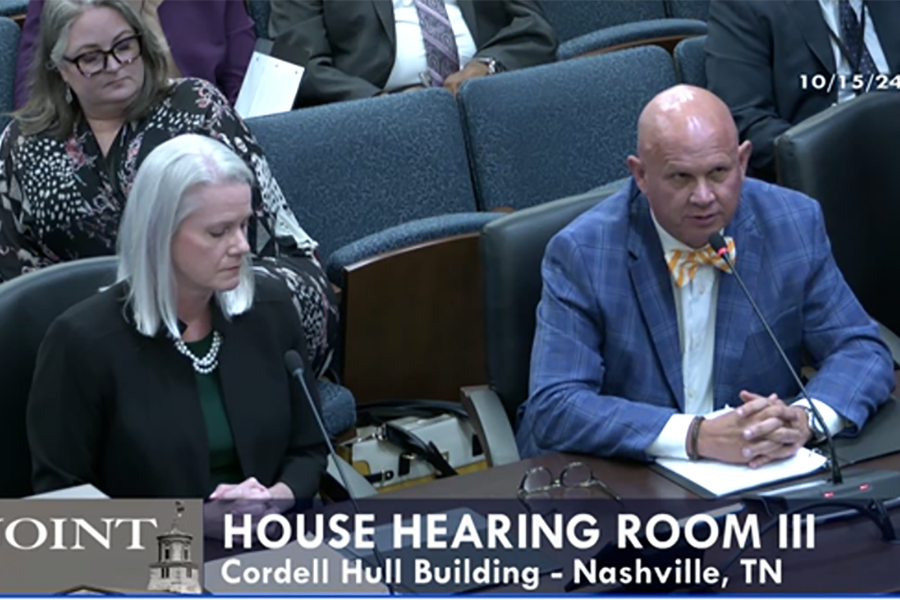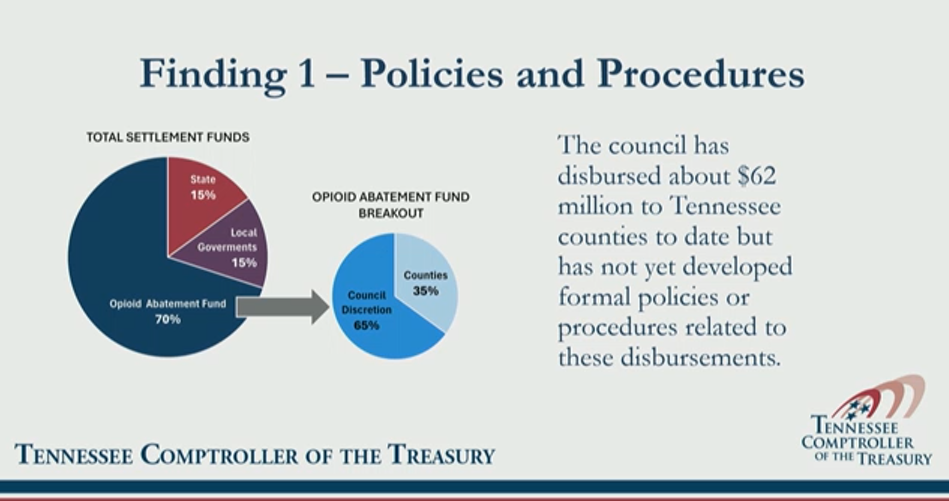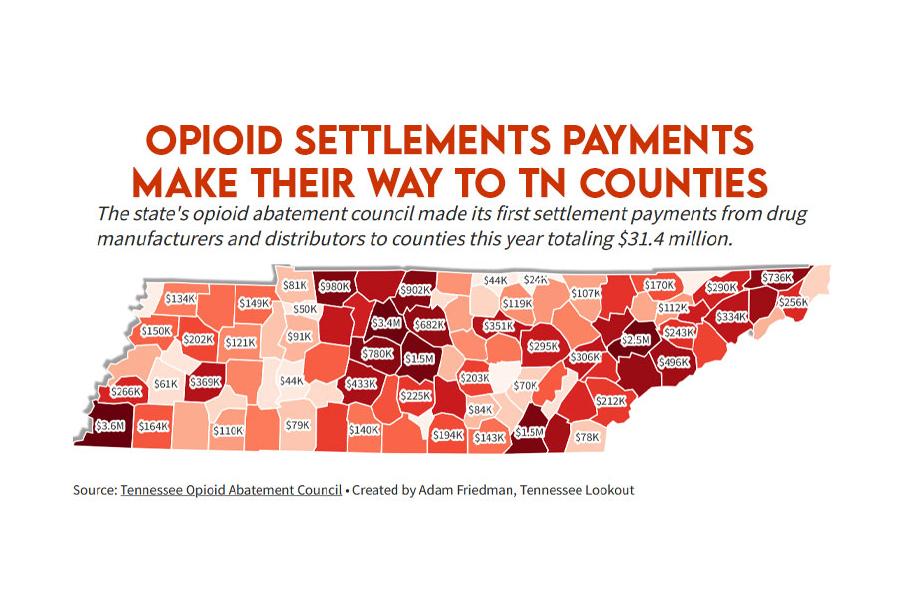Opioid Abatement Council addresses underpayment, discusses funding strategies

By KATE COIL
TT&C Assistant Editor
The Tennessee Opioid Abatement Council will be correcting an underpayment of county allocations in a future disbursement.
During the Oct. 15 meeting of the Government Operations Joint Evaluation Committee on Judiciary and Government, Mary Anne Hagan, legislative senior auditor with the Tennessee Comptroller’s Office, reported an audit of the committee and uncovered one audit finding and another observation linked to that audit finding.
Hagan said this is the first audit the council has undergone since its inception and included the areas of membership, open meetings requirements, annual reporting requirements, policies and procedures, disbursements to counties, and its approved use list. She said the audit finding regarded the need for the council to “develop written policies and procedures to govern its operations and ensure it meets its vision.”

“While the council has developed informal policies and procedures as the need arose, it has not yet documented those policies and procedures when used,” Hagan said. “Without written policies and procedures, management risks noncompliance and inconsistent operations, such as those identified in the observation in our report.”
Hagan said the council miscalculated the 2024 county disbursement of funds resulting in an underpayment about $5.6 million as a result of management not implementing a consistent method of calculating county disbursements. Council staff informed the auditors informed this miscalculation due a “math error” after altering the planned county disbursement schedule at the request of the attorney general.
The underpayment will be corrected in the upcoming 2025 payments to counties. Hagan said the council staff used inconsistent calculation methods between 2023 and 2024 disbursements, including administrative expenses and interest earned. Hagan said auditors recommended formal written policies to prevent this error from happening in the future.
“The council is expected to receive more than $833 million in opioid settlement funds for those settlements already entered into, $227 million of which have already been by May of this year,” Hagan said. “From the 70% of settlement proceeds the council receives and directs the use of, the council has made disbursements of the required 35% to the counties in 2023 and 2024 for a total of about $62 million to date.
Mary Shelton, executive director of the Tennessee Opioid Abatement Council, said she and the council were in complete agreement with the findings and the suggestions of the auditors. She said the council hired a senior policy analyst in September, who has since drafted upward of seven policies. Shelton said she would bring at least two of these to the committee for review in December.
“Additionally, to ensure we are in statutory compliance, our office will consult with the attorney generals office before finalizing any policies,” she said. “We are also in agreement with the observation of implementing a consistent method of calculating the county disbursements. Our accountant, who began employment in July, is currently assisting with the crafting of polices and procedures to accurately outline the payment methodology of the payment disbursement to the counties. When the counties receive their letters of agreement in February 2025 for the 2025 disbursements, the accompanying information will include information about the $5.6 million underpayment and that those dollars are also included in those payments.”
Shelton noted the council is also implementing program and fiscal monitoring, performance outcome measures, and semi-annual reporting for counties and grantees. She also further broke down the funds disbursed from the fund, noting that in addition to the $62.4 million allocated to county use nearly $1 million had been distributed to contracted users.
Sen. Janice Bowling, R-Tullahoma, inquired about what type of treatment programs are being funded, expressing concerns about medical treatments that replace opioids with other drugs.

“I hate to see Perdue Pharmaceutical and other companies laugh all the way to the bank as they are being paid to provide more opioids to treat the opioid epidemic that they – from all the evidence and all the research – knowingly started,” Bowling said.
Shelton said several strategies are being funded through the trust fund, including primary prevention, recovery support, research, education, and training.
Dr. Stephen Loyd, chairman of the Tennessee Opioid Abatement Council, said the council tries to fund all strategies that help individuals in recovery.
“I am a product of abstinence-based recovery myself, and I am a big believer in that,” Loyd said. “Everybody’s path to recovery is different. A lot of times, it looks like Big Pharma created the issue and now they have the answer for it. Unfortunately, for some people, their use is such that the only way we can keep them alive is medication. That needs to be available to those who needed, but we also need to fund abstinence-based strategies.”
More importantly, Loyd said he has found recovery finds more success when social determinants of health are addressed.
“We are talking about housing, job training, and the things people need to put their lives back together, he said. “Our council has been pretty sensitive to that. If you look at the breakdown of our awards from the first round of grant money, you will see a lot of the funding went to those social determinants of health. The goal for everyone is to get to live like I live. A lot of them can get there if we give them the resources; some of them can’t. We have to use a discerning eye to find the path that is right for them.”
With a move from Vice Chair John Ragan, R-Oak Ridge, and a second from Bowling, the committee unanimously voted for a four-year extension for the council.
